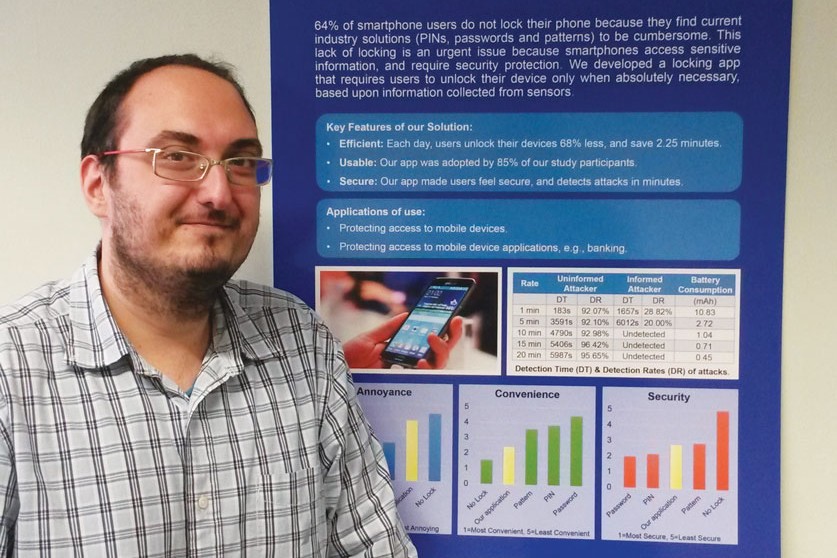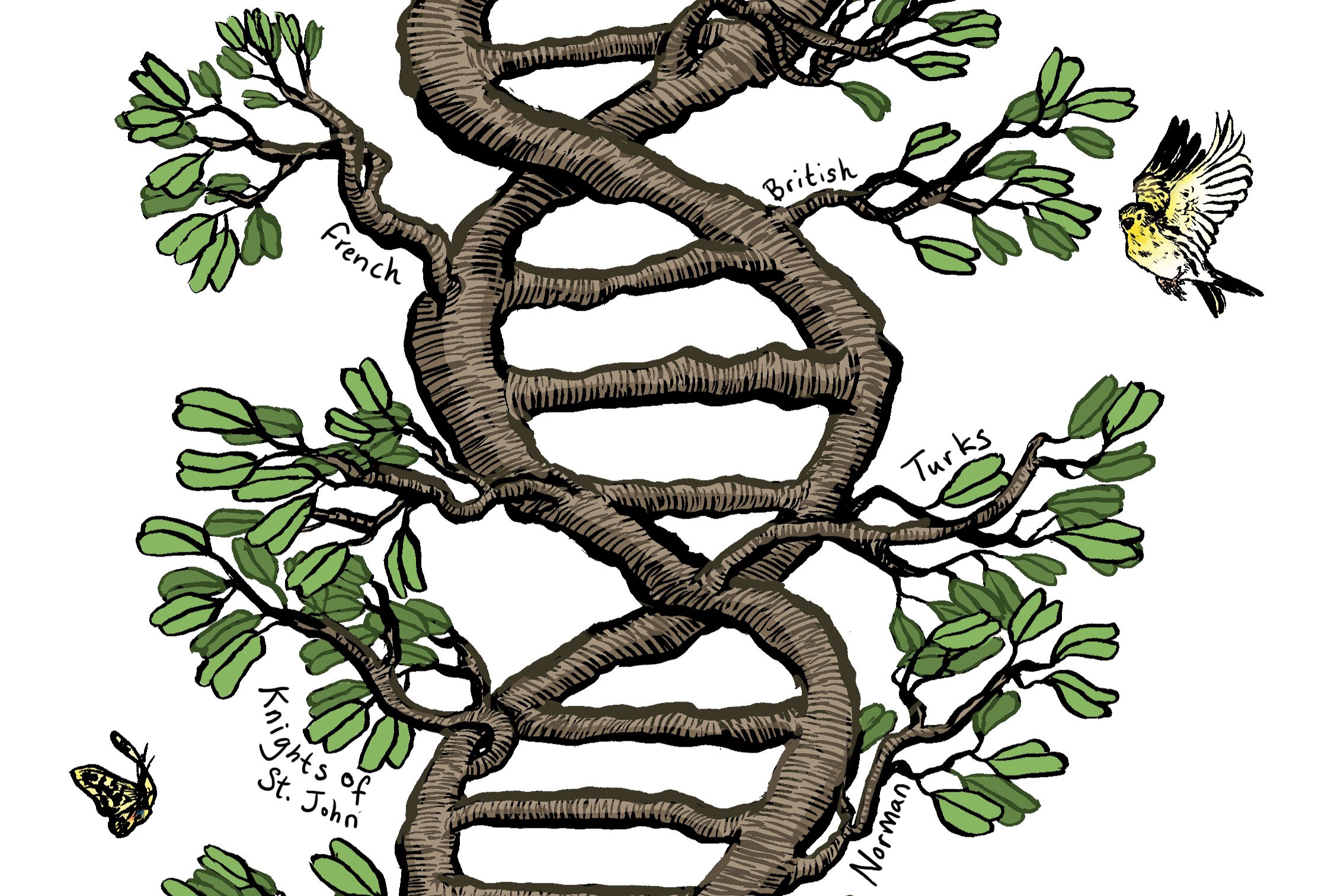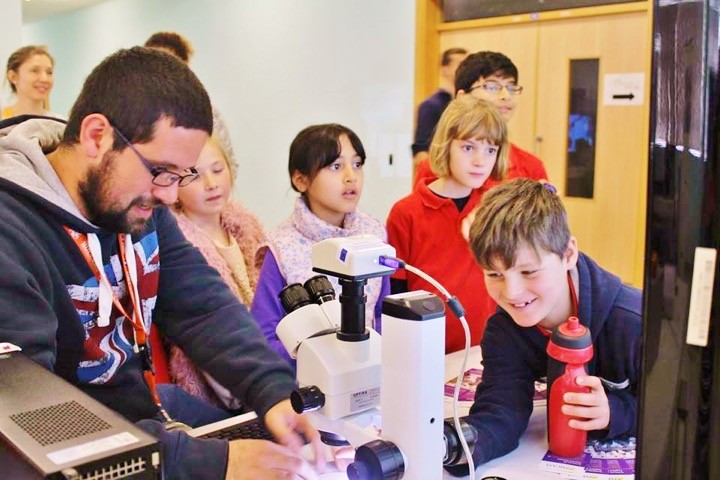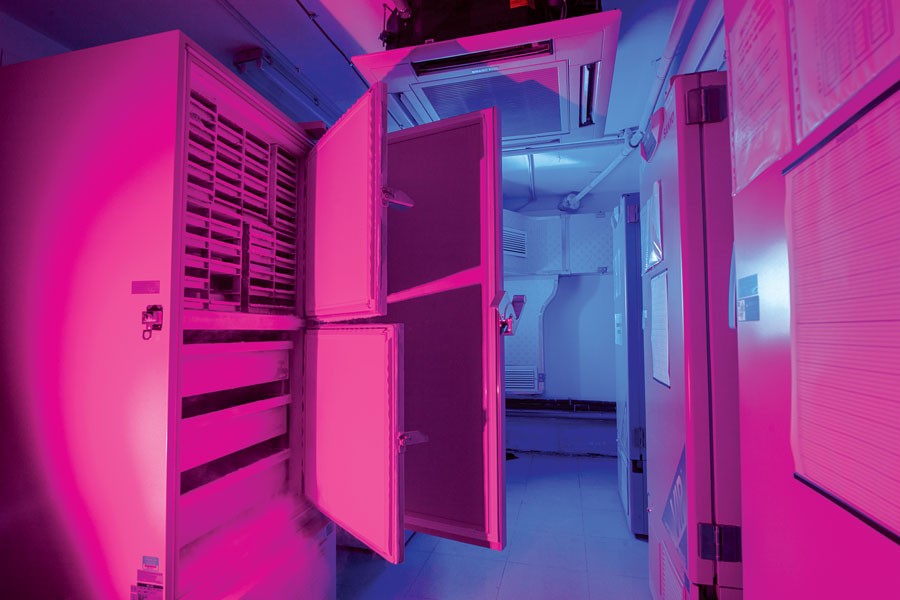Modern European sculpture
French sculptor Auguste Rodin (1840–1917) is the progenitor of modern sculpture. He rebelled against idealised forms in order to express the inner truths of humanity in his artworks. His successors went on to challenge his work, continuing to explore the aesthetic revolution he had started. Key examples include Henry Moore (1898–1986), Alberto Giacometti and the largely undiscovered Swiss sculptor Hans Josephsohn (1920–2012).

These artists were studied alongside Maltese sculptor Josef Kalleya (1898–1998) at the conference entitled ‘Peripheral Alternatives to Rodin in Modern European Sculpture’ (December, 2015). The international speakers created significant links between works by renowned sculptors and Kalleya, who has been poorly understood by his contemporaries and is unknown outside Malta. Kalleya developed unique methods of creating photomontages alongside the innovative use of a knife to create powerful visceral incisions as a means of moulding his sculptures. He managed to create a new aesthetic.
The conference brought scholars from all over Europe to discuss these and other European sculptors. The scholars debated topics from the mutation of the human form to an artist’s sense of heritage. The event focused on pioneering sculptors who went beyond their current socio-political context. It also helped place Malta’s own Kalleya deservedly on the international map.
The conference and exhibition were organised by the Department of History of Art, Faculty of Arts, University of Malta. The events were convened by Dr Giuseppe Schembri Bonaci and curated by Nikki Petroni. Other participants included Dr Sophie Biass-Fabiani (Musée Rodin, Paris), Dr Jon Wood (Henry Moore Foundation, Leeds), Barbara Vujanović (Atelijer Meštrović, Zagreb), Dr Julia Kelly (Loughborough University), and Ulrich Meinherz (Kesselhaus Josephsohn, St Gallen).
Why practise Taijiquan?
In the 12th century, the Shaolin Monk Chang San Feng witnessed a battle between a snake and a crane, during which the snake managed to conquer its opponent with its grace. The monk went on to formulate a set of movements, which have become the basis of Tai Chi, a martial art based on the pillars of Taoism, Confucianism and Buddhism. Taoism upholds the importance of being one with nature and the universe.
Taijiquan shares concepts with Confucianism, a system of philosophical teachings that stresses that all under the sky is one family. Everyone can be part of this great family regardless of their social status, political or religious creed. By practising Tai Chi together and sharing knowledge, participants learn and develop respect and obedience; qualities stressed by Chinese teacher and founder of Confucianism, Confucius.
During my Tai Chi classes, I like to first develop the technical aspects of a student’s movements in order for them to have a solid foundation. This is then followed by an emphasis on self-expression through movement and concentration on these movements. In the film Enter the Dragon, Bruce Lee tells his apprentice ‘like a finger pointing away to the moon. Do not concentrate on the finger or you will miss all that heavenly glory.’ At first a movement is just a movement. However, after constant practice and analysis, the practitioner realises that the movement has a rhythm behind it and this charges them with feeling, a process that resembles the way a musician feels the beat/the rhythm when performing.
The benefits of Taijiquan
Taijiquan is a good method to alleviate stress and achieve good health. Rather than going to a gym, where a lot of energy and effort are required, with Tai Chi, a lot can be achieved without any force, and like Taoism, Tai Chi is based on the principle, known as Wu Wei (effortless effort). This means that those who practise Tai Chi should be soft and flexible in the same way that water flows smoothly. Water can take the form of any container yet on its own it is formless and shapeless.
Some scientific studies have shown Tai Chi’s benefits. One study concluded that moderate Tai Chi practice helps older people maintain fitness, while other studies showed that Tai Chi was good for a healthy and well-functioning heart, as well as to regulate blood pressure levels.
Taijiquan is based on the principle of Yin and Yang, an element of Chinese philosophy that describes how two contrary forces can be complementary. Building on this belief, those who practise the discipline try to achieve harmony which in turn brings with it good health.
The Hidden History of the Maltese Genome
By reading someone’s DNA one can tell how likely they are to develop a disease or whether they are related to the person sitting next to them. By reading a nation’s DNA one can understand why a population is more likely to develop a disease or how a population came to exist. Scott Wilcockson talks to Prof. Alex Felice, Dr Joseph Borg, and Clint Mizzi (University of Malta) about their latest project that aims to sequence the Maltese genome and what it might reveal about the origins and health of the Maltese people.
Heartbreakers
Every person possesses the same genes within every cell. Their DNA provides the information to first create an entire functioning body and then keep it running. While all humans share more than 99.9% of their DNA, it is the subtle differences in our DNA that ensure individuality. Many differences are superficial effects, like hair colour, but some can have disastrous health effects. Scott Wilcockson talks to Dr Stephanie Bezzina-Wettinger (Faculty of Health Sciences, University of Malta) about her research on these subtle differences and how they can contribute to heart attacks.
Rockets that Fail Safely
Spacecraft failures are spectacular. These unfortunate events are seared into the public memory. One reason why rockets can fail are software bugs. If a rocket’s computer system fails, that infamous blue screen leads to lost work hours, billions of Euro, and lives. Researchers from the Faculty of ICT and Faculty of Engineering (University of Malta) tell THINK about their collaboration with the European Space Agency (ESA) to test novel satellite software architecture to prevent rocket failure.
Beyond Lab Coats and Microscopes
 Pride. That’s what Enrico felt when his name was announced at the Science Expo as the winner of the NSTF Contest for young scientists. The contest is a first step helping to build what Enrico Zammit Lonardelli calls his ‘scientific character’. It is a journey that led him to compete on an international level in Milan to represent Malta, meet and talk to incredible people, and learn about the way in which science is carried out all over the world. Feelings of honour, fulfilment, and success quickly followed. ‘Being surrounded by the best people in Europe in all possible aspects and fields of science was simply amazing.’
Pride. That’s what Enrico felt when his name was announced at the Science Expo as the winner of the NSTF Contest for young scientists. The contest is a first step helping to build what Enrico Zammit Lonardelli calls his ‘scientific character’. It is a journey that led him to compete on an international level in Milan to represent Malta, meet and talk to incredible people, and learn about the way in which science is carried out all over the world. Feelings of honour, fulfilment, and success quickly followed. ‘Being surrounded by the best people in Europe in all possible aspects and fields of science was simply amazing.’
Taking on such challenges in the scientific world at only 17, Zammit is the younger mirror image of another 17 year old that, around 20 years earlier, started the same journey. Today lecturer Conrad Attard (Faculty of ICT, University of Malta; Vice Chair, IEEE Malta Section) is handling several activities, one of which is an exhibit with his team for the same Science Expo which started Enrico off on his scientific voyage.
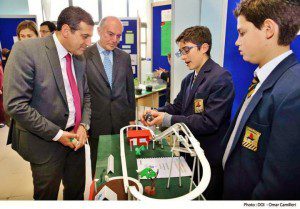 Attard sees the Expo as a great way to distribute resources, and meet kids and visitors. ‘I want students to get excited about science and for more students to engage with these subjects’. That’s why Attard always teaches them in a fun way, by creating games were students need to solve logic problems that involve science and computing to learn and achieve their goals, and that is exactly what his exhibit at the NSTF Expo does.
Attard sees the Expo as a great way to distribute resources, and meet kids and visitors. ‘I want students to get excited about science and for more students to engage with these subjects’. That’s why Attard always teaches them in a fun way, by creating games were students need to solve logic problems that involve science and computing to learn and achieve their goals, and that is exactly what his exhibit at the NSTF Expo does.
So why is the growth of science communication important in Malta? For Attard, it is all about helping people find out what they do well in and pushing students to reach out beyond their comfort zone and that mistakes are part of the learning experience.
Zammit understands this principle. Some of his family members suffer from asthma motivating him to research it for the NSTF Expo. ‘Slowly I managed to understand the mechanism and a few questions popped into my mind. The following process was turning those questions into a project by research, planning, and finally experimentation.’
By favouring the multidisciplinary approach students are not limited to only becoming developers, but can also tackle related problems requiring knowledge or skills from other disciplines. This is what attracted Attard to the NSTF Science Expo as it uses crafts, different skills, and logic to solve problems.
 According to Zammit, the NSTF Expo and Programmes focus on analytical skills, public speaking, problem solving techniques, planning, critical thinking, creativity, and descriptive writing. ‘They all focus on character development rather than just the activity and provide an ensemble of quality development which is simply impossible to match by reading books and studying’. And, of course, there are amazing prizes.
According to Zammit, the NSTF Expo and Programmes focus on analytical skills, public speaking, problem solving techniques, planning, critical thinking, creativity, and descriptive writing. ‘They all focus on character development rather than just the activity and provide an ensemble of quality development which is simply impossible to match by reading books and studying’. And, of course, there are amazing prizes.
The Expo gave Zammit a platform for his work to be recognised by experts. ‘It has since motivated me to work harder because now I know what it feels like to win and create something useful. I want to repeat this success, hopefully at larger scales with ever bigger projects and aims.’
Maybe one day, it will be Zammit who will find himself teaching young students about science at the NSTF Expo.
The next NSTF Science Expo will be from 9–16 March for school visits, while the open weekend for everybody else will be on the 12–13 March.
For more information visit the NSTF Malta website or Facebook page.
The Bees and the Bats
 What do bats, bees, wasps and flies all have in common? They are providing humans with pasta sauce for free. These organisms all pollinate our fruit on a daily basis needed to fill the grocer with all the things we love.
What do bats, bees, wasps and flies all have in common? They are providing humans with pasta sauce for free. These organisms all pollinate our fruit on a daily basis needed to fill the grocer with all the things we love.
For plants to reproduce, the most important step of the process is pollination. During pollination, pollen grains (the male cells needed for sexual reproduction) fertilise the female egg cell. This leads to seeds around which form the fruit and vegetables humans love to eat. The male and female cells are found on different parts of the flower, this is where pollinators like bees and bats come into play. They transfer pollen from one plant to another fertilising them.
Bees and other pollinators are needed for food security and economic resilience. These creatures help pollinate 87% of plant species that we use for food, material, feeding livestock, and medicine. They are essential for human diets since 70% of the world’s crops need pollinators. In Malta, crops such as tomatoes and green pepper would not grow. Bees and pollinators affect the economy, with a worldwide estimate of €153 billion. Pollinators encourage biodiversity; they pollinate crops and wild plants helping to keep the environment healthy.
The decline of bees has serious consequences for the world. So important that it was a main issue discussed by the Commonwealth countries during CHOGM (Malta, 2015) at an event organised by Friends of the Earth. Paul de Zylva (Friends of the Earth, UK) outlined the main causes as habitat loss due to urbanisation, pesticides, and climate change.
 So how do we save the bees ?
So how do we save the bees ?
Politicians, researchers, and citizens must work together to reverse bee decline. Some actions are already being undertaken. Clive Harridge (secretary general of the Commonwealth association of planners) indicated that the UN member states must include 17 sustainable development goals (SDGs) in their political policies, three of these address ecosystem threats. One of these (SDG 2) emphasises the need to end hunger by achieving food security and improved nutrition through sustainable agriculture. Another, (SDG 11) states the need to make cities and human settlements inclusive, safe, resilient, and sustainable. While a third (SDG 15) indicates needing to protect, restore, and promote sustainable use of terrestrial ecosystems, sustainably manage forests, combat desertification and halt and reverse land degradation and biodiversity loss. Bees play a part in all of these goals.
Across the Commonwealth, national case studies are trying to understand the situation with pollinators to figure out how to save them. Ideas include areas where agriculture and wildlife are merged, creating habitats such as green roofs (green roofs are being built both at MCAST and the University of Malta), while some companies are even building bee hotels. Bee hotels are places where solitary bees can make nests and lay eggs without producing honey. These bees tend to be much less aggressive and thrive as long as there is enough wildlife for them to obtain food.
 Citizen engagement is needed to encourage participation to collect data and evidence. By working with researchers and policymakers real change can be achieved to save bees. Considering Malta’s situation, lecturer Dr Mario Balzan (MCAST) said at the CHOGM event that studies he was involved in showed that wild flowers growing near tomatoes helped increase their yield. Insects living on these flowers helped pollinate the tomatoes and may have acted as natural pest controls. By planting flowers in gardens and balconies bee habitat would be expanded.
Citizen engagement is needed to encourage participation to collect data and evidence. By working with researchers and policymakers real change can be achieved to save bees. Considering Malta’s situation, lecturer Dr Mario Balzan (MCAST) said at the CHOGM event that studies he was involved in showed that wild flowers growing near tomatoes helped increase their yield. Insects living on these flowers helped pollinate the tomatoes and may have acted as natural pest controls. By planting flowers in gardens and balconies bee habitat would be expanded.
There are many reasons for bee decline from uncontrolled pesticide use to widespread infections. Only by researching the problem then creatively addressing these issues can bee decline be reversed. This will require all sectors of society from citizens to researchers and policy makers to work together to save the birds and the bats.
This article featured in the Sunday Times of Malta.
Maltese Medical Minds…ASSEMBLE!
Diseases and disorders plague humanity. They have the power to devastate the afflicted and those close to them. Globally researcher are fighting back. Recently, the Maltese branch of this international force came together at the 9th Malta Medical School Conference to present their most recent findings on matters from pediatrics and public health, to the minute mechanics of the molecular world that make us all tick. Outlined here are just two examples out of over a hundred presented on the day. Words by Scott Wilcockson.
The Malta BioBank / BBMRI.mt
In the early 1990s, the Malta BioBank was started with the collection and storing of samples from all Maltese children who had been screened for rare blood disorders. Set up as a collaboration between the University of Malta and the Malta Department of Health, it was first launched using Italia-Malta project funds followed by EU pre-accession funds.Continue reading

